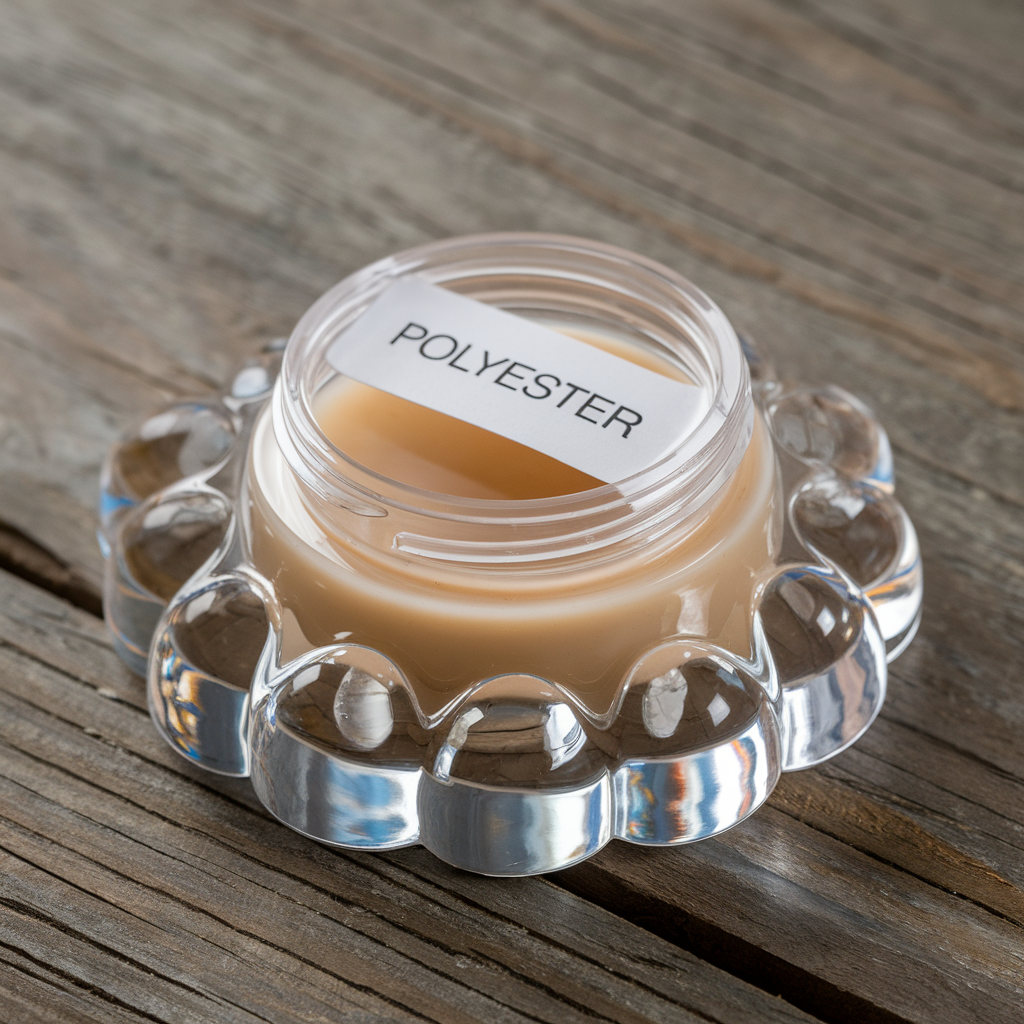Is Polyester Bad for Your Health? The Shocking Truth Revealed

Polyester is one of the most common fabrics in the world. It seems like polyester is everywhere, from clothing to furniture. It’s durable, inexpensive, and widely used. But have you ever wondered if polyester is bad for you? Is polyester bad for your skin? Could there be hidden health risks from daily wear?
Hello there, In this guide, we will explore some surprising truths about polyester. And may it hurt your health or not? We will delve into the production process. Potential health concerns And what the experts have to say
What Is Polyester?
Polyester is a synthetic fabric made from petroleum products. It is one of the most commonly produced fibers worldwide. And used in various industries Especially in fashion and home decoration. The fabric is popular because it is durable. It is resistant to shrinkage and dries quickly. However, because it is a synthetic material, it does not breathe naturally like cotton or linen.
How Is Polyester Made?
Polyester is created from a chemical reaction involving petroleum, coal, air, and water. The fiber is produced using a polymerization process that is not environmentally friendly. Polyester production releases hazardous chemicals such as volatile organic compounds (VOCs) and acidic gases. Which causes air and water pollution?

Is Polyester Bad for the Environment?
The main concern with polyester is its environmental impact. Because it is made of plastic, Polyester therefore does not biodegrade. This means that polyester fabric can lie in landfills for hundreds of years before breaking down. Polyester production is also energy-intensive and polluting globally.
Is Polyester Bad for Your Health?
1. Skin Irritation and Allergies
Polyester is known to cause skin irritation in some people. Because it is a synthetic material, it cannot let your skin breathe like natural fibers can. If you have sensitive skin, Wearing polyester for long periods can trap sweat and bacteria. This can cause rashes, itching, and irritation.
2. Chemical Exposure
Polyester is treated with various chemicals during production to give it properties such as water resistance and a wrinkle-free texture. These chemicals, such as formaldehyde, can sometimes cause allergic reactions or even respiratory problems in sensitive individuals. Wearing polyester for long periods can expose you to small amounts of these chemicals.
3. Heat Retention
Polyester is not a breathable fabric. Helps retain heat and sweat on the skin. This can be especially uncomfortable in hot weather. If you regularly wear polyester clothing Lack of ventilation can lead to fungal infections or other skin conditions.
4. Microplastics in Your Body
When washing polyester, tiny plastic particles—so-called microplastics—are released into the water system. These microplastics are not filtered in wastewater treatment plants. And end up in rivers, oceans, and even our food supply. Eating or breathing in microplastics can hurt your health. Although more research is needed to fully understand the long-term effects
Is Polyester Bad for Skin?
People with sensitive skin often feel uncomfortable wearing polyester. Moisturizing properties can be a double-edged sword: on the one hand, they pull moisture away from the skin. But on the other hand, it will retain heat and sweat This creates the perfect environment for bacteria to grow. As time passes, This can lead to dermatitis, acne, and other skin problems. Infants and people with eczema or other skin diseases should be avoided. Natural fabrics such as cotton, linen, and bamboo are very gentle on the skin.
Also Read: 6 Easy Steps to Start Gratitude Meditation Today for a Happier You
Why Is Polyester Bad for You?

1. Breathability
That being said, polyester is not as breathable as natural fabrics. Wearing them in hot and humid environments can make you feel sticky and uncomfortable. And prolonged exposure to sunlight can cause heat burns or fungal infections.
2. Synthetic Fibers and Skin Reactions
Synthetic nature of polyester Especially in people with sensitive skin. May cause allergic reactions such as rashes or itching. Rubbing polyester fibers against the skin can irritate sensitive areas such as the underarms or neck.
3. Chemical Additives
Polyester is often treated with flame retardants, dyes, and other chemicals. That can penetrate your skin over time. These chemicals have been linked to everything from skin irritation to serious health problems like hormonal disruption.
Is Wearing Polyester Bad for You?
There are serious disadvantages to wearing polyester from time to time, though. However, continued exposure can cause negative effects over time. The main concern is clothing that doesn’t breathe well. Possible exposure to chemicals and factors that cause environmental pollution These problems can be aggravated by increased sweat and friction from wearing polyester during strenuous activities such as exercise.
Why Do People Still Use Polyester?

Even though there are disadvantages, polyester is also widely used. This is because they are cost-effective and have some advantages over natural fibers. Polyester is:
- Affordable: It is cheaper to produce and buy than most natural fabrics.
- Durable: They last a long time and resist shrinking, stretching, and wrinkling.
- Low Maintenance: Polyester is easy to care for and requires little ironing.
- Versatile: It is used in everything from sportswear to household items.
These advantages make polyester an attractive choice for manufacturers and consumers. This is despite some health and environmental concerns.
What Are the Alternatives to Polyester?
If you’re concerned about the potential health risks of polyester, You may want to consider alternatives made from natural fibers. Some of the best options include:
- Cotton: Soft cotton Good ventilation And does not cause allergies; it is a good choice for people with sensitive skin.
- Linen: Linen, made from the flax plant, is another natural, breathable fabric. This helps keep you cool during hot weather.
- Bamboo: Bamboo is known for its softness and durability. It has become a popular alternative to polyester and other synthetic fabrics.
- Hemp: This eco-friendly fabric is breathable, durable and biodegradable. This makes it a great choice for those who are environmentally conscious.
FAQs
1. Is polyester safe for babies?
Polyester is not the best choice. Especially for babies with sensitive skin, natural fabrics like cotton or bamboo are softer and less likely to pinch.
2. Can polyester cause allergies?
Yes, polyester can cause allergic skin reactions or irritation in some people. Synthetic fibers can retain heat and moisture. Causes skin problems such as rashes or itching.
3. How Can I Avoid Polyester?
Check clothing labels before purchasing. Opt for natural fibers like cotton, linen, and bamboo. You can also look for eco-friendly or organic clothing brands that avoid using synthetic materials.
4. Does Polyester Release Microplastics?
Yes, washing polyester clothes releases microplastics into the water system. Causes pollution to the environment
5. Can Wearing Polyester Cause Skin Problems?
Regularly wearing polyester Especially in hot and humid weather. May cause skin irritation. Rashes and acne can occur. Due to lack of ventilation and trapping moisture.
Conclusion
Polyester is convenient and inexpensive. But it can come with health and environmental risks. Although the occasional polyester dressing is unlikely to harm you, daily use, especially in hot weather, can cause skin irritation. Exposure to chemicals and other problems If you have sensitive skin or are concerned about the environmental impact Switching to natural fabrics, such as cotton, is better for your health.
Bamboo and linen… Can choose when buying clothes Always check the label and make an informed decision to ensure your comfort and health.
Recommended For You: How Fruit Dating Helps You Pick the Right Partner—Naturally